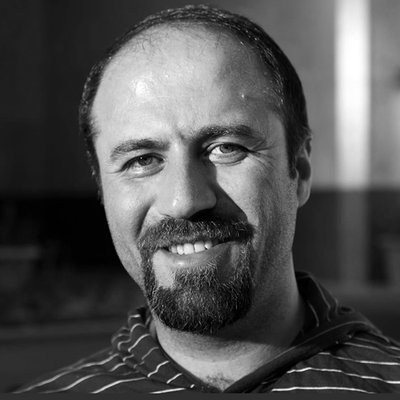
Last Update
June 14, 2020
Organisation
Unknown
Gender
Male
Ethnic Group
Unknown
Religoius Group
Unknown
Province
Tehran
Occupation
Journalist
Sentence
6 years imprisonment
Status
Released
Institution investigating
IRGC Intelligence
Charges
Conspiring against national security
Propaganda against the regime
Hossein Noorani Nejad Released
“Hossein returned and what did they do? They destroyed my son’s life so that others would learn a lesson and not return? Is it right to take someone’s baby away to send a message to others? They should just send a message and tell them not to come.”
Since then, he has spent more than a year in prison, during which he went on numerous hunger strikes and was placed in solitary confinement for extended periods of time. He temporarily moved to Australia to escape persecution but was re-arrested upon his return to Iran.
“Hossein returned and what did they do? They destroyed my son’s life so that others would learn a lesson and not return? Is it right to take someone’s baby away to send a message to others? They should just send a message and tell them not to come.”
Security forces first arrested Hossein Noorani Nejad, a journalist and political activist, during the aftermath of the disputed 2009 presidential election at midnight on December 31st 2009, at the home of one of his relatives. Ali Akbar Mohtashami-Pour, a close family relation, was the security chief at the election headquarters of Mir Hossein Moussavi, the reformist candidate.
Nejad was tried on charges of propaganda against the regime and conspiracy against national security at Branch 28 of the Revolutionary Court, which was presided by Judge Mohammad Moghisei who sentenced him to three years in prison. When he appealed, Branch 54 of the court reduced his sentence to a year in prison.
Nejad was sent to communal Ward 350 at Evin Prison, which is for political prisoners and prisoners of conscience, to serve out his sentence. In protest of the difficult prison conditions, he went on hunger strike numerous times. During one strike in August 2010, he was removed from Ward 350 and placed in solitary confinement.
He was released after serving his one-year sentence on September 11th, 2010. Following his release, Nejad and his wife Parastou Sarmadi left Iran for Australia where he undertook a degree in human rights and democracy at Sydney University. After the 2013 presidential election, which elected Hassan Rouhani, he and his wife returned to Iran. When he returned in early 2014, he was able to see his infant child who had been born there.
Like many Iranians, both in the country and abroad, he believed that Hassan Rouhani’s election meant there would be a new era of political openness in Iran. “In the past four years, security forces have dominated the entirety of society and been able to shape an atmosphere of suspicion, despair and delusion,” Noorani Nejad told Al Monitor in July 2013. He placed the blame for the country’s inefficient domestic and foreign policy on security forces, whose presence has negatively affected the social and cultural life of Iranians. “The atmosphere formed after the [recent] election and the participation of the Green Movement supporters has paved the way to resolve many [political] issues.”
However, the hopes of these supporters were dashed for the most part, at least in the short term. In early May 2014, agents working for the Revolutionary Guards arrested Noorani Nejad for the second time and searched his house – some of his personal belongings and documents were seized and he was taken to Ward 2A of Evin Prison, which is controlled by the Revolutionary Guards. In the early days of his detention, there were no charges against him.
“Clear Message: Do Not Return to Iran!” wrote Isa Saharkhiz after his arrest. “The message is clear and short: ‘The government has no authority, we say the last word and we will not allow Iranians who have left the country, are dual nationals and residents abroad to return to the country and easily restart a life here.’”
While Nejad said, “to those who had hopes, particularly political and social activists, pay attention and stop making preparations to go back to Iran to live or even to visit your relatives.”
His mother echoed the same sentiment. “Hossein returned and what did they do?” she asked. “They destroyed my son’s life so that others would learn a lesson and not return? Is it right to take someone’s baby away to send a message to others? They should just send a message and tell them not to come.”
Noorani Nejad spent 20 days in solitary confinement and on June 10th, 2014, he was tried at Branch 15 of the Revolutionary Court. The Court, presided by Judge Salavati, sentenced him to six years in prison for propaganda against the regime and conspiracy against national security.
Noorani Nejad was temporarily released on a bail of more than $100,000 on June 16th, 2014. Like numerous similar cases in Iran, his sentence still stands and he can be sent back to prison anytime the authorities desire.